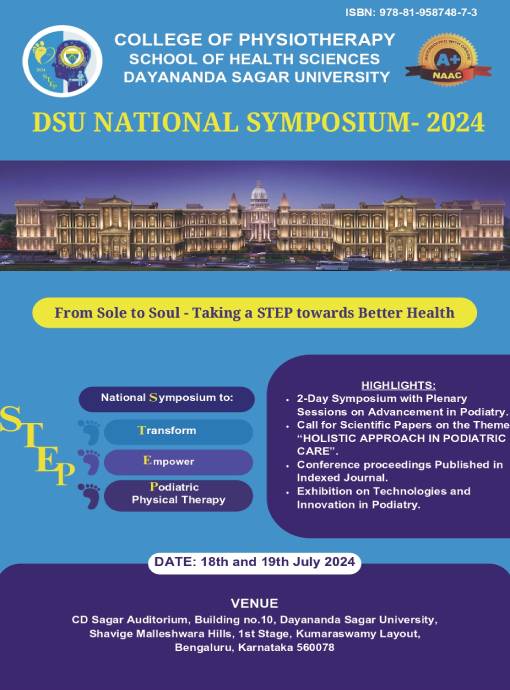Prevalence of Fall Risk in Institutionalized Care Elderly Population: In Arpookara Panchayat, Kottayam, Kerala, India - A Population Based Observational Study
DOI:
https://doi.org/10.18311/DSUPHY/9788195874873/2024/015Keywords:
Institutionalized; Risk of Fall; Elderly; AMTS; FRATAbstract
Introduction: Aging is a biological reality, which has its own dynamic beyond the control of humans. Falls are an important cause of disability and mortality among elderly. The age of 60 and above are considered as the beginning of old age. The increase of life expectancy has been a source of concern about quality of life and wellbeing of elderly people, especially regarding falls. Objective: The objective of the study is to assess the prevalence of falls in institutionalized care geriatric population. Methodology: The study was conducted in the geriatric rehabilitation center at Arpookara Panchayath, Kottayam district, Kerala. Received informed consent from the authorities of geriatric rehabilitation center and the purpose of the study was explained. Medical data of the patients with risk of fall was collected from the geriatric center authorities. Subjects who met the following criteria: 1) Ambulatory elderly men and women aged 60 years old or older 2) Subjects in institutional setting. 3) The use of 2 outcome measures related to falls risk and balance. 4) Subjects with a history of fall within one year. 5) Subjects willing to participate in the survey. 6) Co-operative patients with controlled health condition. The selected patients are assessed using Falls Risk Assessment Tool (FRAT). Result: Out of the total three hundred and five inhabitants, 72 subjects had history of fall and fulfilled the inclusion criteria for the study, aged 68+/- 6 years (23.6% of the sample) suffered falls. Patient falls once in last 12 months (76.3%), One or more falls between 3 and 12 months ago (29.1%). One or more falls in last 3 months (8.3%). Patients taking one medicine (87.5%) (Sedatives, anti-depressants, anti-hypertensive) Patients taking more than 2 medicines (59.7%). Patient does not have any of the psychological disturbances (69.4%), Patients affected by one or more psychological disturbances was (45.8%). Patients affected by cognitive status mildly as per AMTS is (95.8%) and moderate was (26.3%). Patients with low risk of fall were (82%), medium risk of fall (74%), high risk of fall (13%). Conclusion: The study showed that the prevalence of falls among institutionalized elderly is moderate and if more physiotherapeutic care and proper health awareness is provided it would be possible to minimize such incidence to the maximum possible extent.
 Shyni M.
Shyni M.
